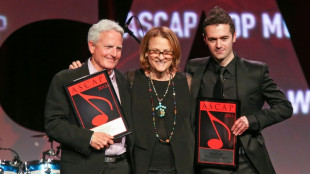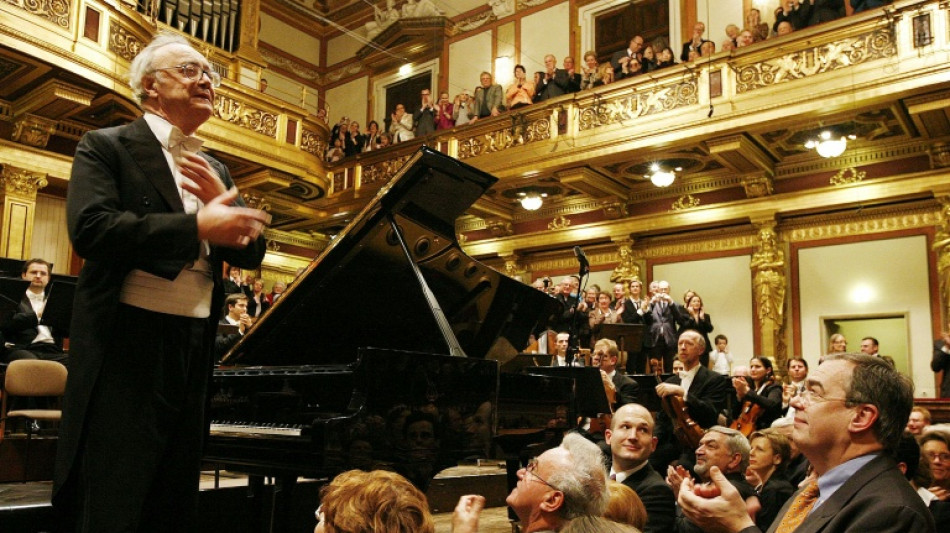
-
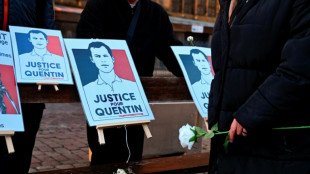 French hard left reports 'bomb threat' after far-right activist killing
French hard left reports 'bomb threat' after far-right activist killing
-
Gabon cuts off Facebook, TikTok after protests
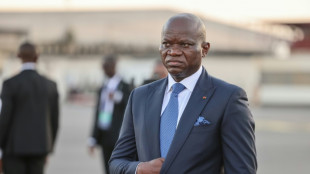
-
 India celebrates birth of cheetah cubs to boost reintroduction bid
India celebrates birth of cheetah cubs to boost reintroduction bid
-
Greek taxis kick off two-day strike against private operators

-
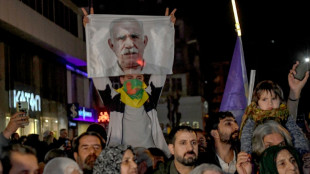 Turkey MPs back moves to 'reintegrate' former PKK fighters
Turkey MPs back moves to 'reintegrate' former PKK fighters
-
Sri Lanka unfazed by England whitewash ahead of Super Eights clash

-
 Shiffrin primed for Olympic gold after rapid first slalom run
Shiffrin primed for Olympic gold after rapid first slalom run
-
Dog gives Olympics organisers paws for thought
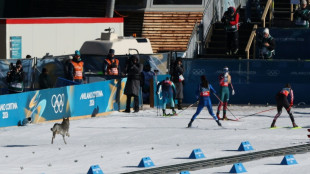
-
 South Africa fire Super Eights warning to India with UAE romp
South Africa fire Super Eights warning to India with UAE romp
-
Ukraine war talks resume in Geneva after 'tense' first day

-
 US tech giant Nvidia announces India deals at AI summit
US tech giant Nvidia announces India deals at AI summit
-
US comedian Colbert says broadcaster spiked Democrat interview over Trump fears

-
 Kenyan activist fears for life after police bug phone
Kenyan activist fears for life after police bug phone
-
Isabelle Huppert sinks teeth into Austrian vampire saga

-
 Peru to elect interim leader after graft scandal ousts president
Peru to elect interim leader after graft scandal ousts president
-
French designer threads a path in London fashion week

-
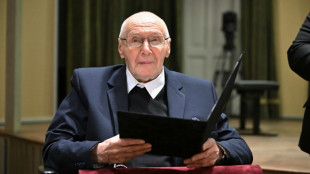 Hungarian star composer Kurtag celebrates 100th birthday with new opera
Hungarian star composer Kurtag celebrates 100th birthday with new opera
-
Congolese rumba, music caught between neglect and nostalgia

-
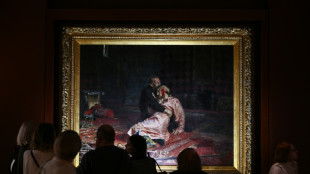 'Close our eyes': To escape war, Muscovites flock to high culture
'Close our eyes': To escape war, Muscovites flock to high culture
-
Denmark king visits Greenland

-
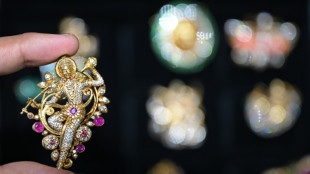 Uncut gems: Indian startups embrace AI despite job fears
Uncut gems: Indian startups embrace AI despite job fears
-
Ukraine war talks to resume in Geneva as US signals progress

-
 Harrop eyes 'Skimo' gold in sport's Olympic debut
Harrop eyes 'Skimo' gold in sport's Olympic debut
-
Junk to high-tech: India bets on e-waste for critical minerals

-
 Struggling farmers find hope in India co-operative
Struggling farmers find hope in India co-operative
-
How Latin American countries are responding to Cuba's oil crisis

-
 Philippines VP Sara Duterte announces 2028 presidential run
Philippines VP Sara Duterte announces 2028 presidential run
-
Asian stocks up, oil market cautious
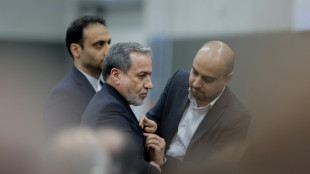
-
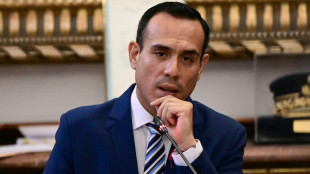 Peru Congress impeaches interim president after four months in office
Peru Congress impeaches interim president after four months in office
-
Hungry, wounded, orphaned: South Sudan's children trapped in new conflict

-
 UK manufacturers struggle under sky-high energy bills
UK manufacturers struggle under sky-high energy bills
-
New tech and AI set to take athlete data business to next level

-
 'Pay or he dies', families told as more Egyptians risk Mediterranean crossing
'Pay or he dies', families told as more Egyptians risk Mediterranean crossing
-
Indonesia coal plant closure U-turn sows energy transition doubts

-
 Ukraine war talks to resume in Geneva with no sign of progress
Ukraine war talks to resume in Geneva with no sign of progress
-
Afghan woman's boutique brightens Bamiyan

-
 Zuckerberg to testify in landmark social media addiction trial
Zuckerberg to testify in landmark social media addiction trial
-
US towns resist Trump plans to jail immigrants in warehouses

-
 Ten skiers missing in California avalanche
Ten skiers missing in California avalanche
-
Guatemalan security forces deploy to gang-plagued capital

-
 US to discuss base with Mauritius as UK returns islands
US to discuss base with Mauritius as UK returns islands
-
Mexico prepares for possible drone threats during the World Cup

-
 The Numbers are Clear: Latest Iteration of Stagwell's News Advertising Study Shows Germans Love Their News
The Numbers are Clear: Latest Iteration of Stagwell's News Advertising Study Shows Germans Love Their News
-
SMX's Low Float Infrastructure Story: After Gold's Record Price This Year, Could This Be a Path Back to Prior Highs?

-
 Apex Strengthens Executive Management Team
Apex Strengthens Executive Management Team
-
Nano One Provides Corporate Update

-
 From Gold to Rare Earths to Digital Assets: How SMX is Redefining Trust Across Industries
From Gold to Rare Earths to Digital Assets: How SMX is Redefining Trust Across Industries
-
Your Cannabis Has a Passport: SMX Tracks It End-to-End

-
 InterContinental Hotels Group PLC Announces Transaction in Own Shares - February 18
InterContinental Hotels Group PLC Announces Transaction in Own Shares - February 18
-
Luxury Needs Proof, Not Promises: How SMX Stops Scams Before They Start


Alfred Brendel: the 'Thinking Pianist's Man'
Self-taught pianist Alfred Brendel, who was widely regarded as one of the greatest musicians of the 20th century, was himself baffled by his success on the world stage.
"I'm completely at a loss to explain why I made it," the musician, who retired in December 2008 after a career spanning six decades, was quoted as saying in a documentary about his life and work.
Brendel, who died on Tuesday aged 94 in London where he had lived for more than 50 years, had a reputation for being modest, self-effacing and intensely self-critical.
He gave only short, quick bows when entering or leaving the stage of his always sell-out recitals. The Guardian said once he was never one "for fireworks and histrionics".
But he was notoriously intolerant of unwanted noise during his concerts, and was even known to walk off stage if he felt disturbed by a loud hacking cough of an audience member.
"If I belong to a tradition, it is a tradition that makes the masterpiece tell the performer what he should do and not the performer telling the piece what it should be like, or the composer what he ought to have composed," he once said.
- Little formal training -
Nevertheless, Brendel -- who began playing the piano at the age of six and had little formal training after the age of 16 -- insisted that the artist shouldn't "block (himself) out" when performing the core central European repertoire of Haydn, Mozart, Beethoven, Schubert, Brahms and Liszt for which he was best known.
While Britain's classical music scene likes to claim Brendel for itself -- he lived in London since 1971 -- he was an Austrian citizen, born January 5, 1931, in Wiesenberg in northern Moravia, now the Czech Republic, and he spent his childhood travelling throughout Yugoslavia and Austria.
His father worked variously as an architectural engineer, businessman and resort hotel manager on the Adriatic island of Krk, where Brendel first encountered "more elevated" music.
"I operated the record player which I wound up and put on the records for the guests of the hotel, which were operetta records of around 1930 sung by Jan Kiepura. And I sang along and found it to be rather easy."
Following World War II, the family moved to Graz in Austria, where Brendel studied at the city's conservatory.
But after that, aside from attending a few masterclasses, he had no further teachers and came to regard his unconventional musical background as something of an advantage.
"A teacher can be too influential," he said. "Being self-taught, I learned to distrust anything I hadn't figured out myself."
He said that when learning a new piece, he tape-recorded himself and listened and reacted to what he heard.
True to that adage, he did not teach formally, either, even if he coached some of the leading pianists of the younger generation, such as Till Fellner, Paul Lewis, Imogen Cooper and Kit Armstrong.
- 'A lot of fun' -
When he retired from concert performances in Vienna in December 2008, he was asked what he would miss most.
"The adrenalin," he said. And "in spite of all those obnoxious coughers and the mobile telephones and hearing aids going off," he would miss the public, too, Brendel said.
Regarded by many as an intellectual artist -- one specialist magazine dubbed him "The Thinking Pianist's Man" -- Brendel insisted his performances were not overly cerebral.
"I have never been somebody who analyses a piece and then plays it. I want to know the piece well and for it to tell me what it is about, and what is special about it."
According to the BBC, most critics acknowledged him as one of the top interpreters of the works of Beethoven.
After his retirement, Brendel wrote books on music and humorous verse and also gave lectures, readings and seminars.
He won numerous awards during his lifetime, including the Hans von Bulow Medal of the Berlin Philharmonic in 1992 and the Herbert von Karajan Music Prize in 2008, as well as a string of doctorates from the world's most prestigious universities.
"I've found it possible to talk about music without talking nonsense, and I think you should always be a little witty. And I want to say this about music in general -- I've also had a lot of fun. I was never a tortured person," he said.
A.Malone--AMWN


